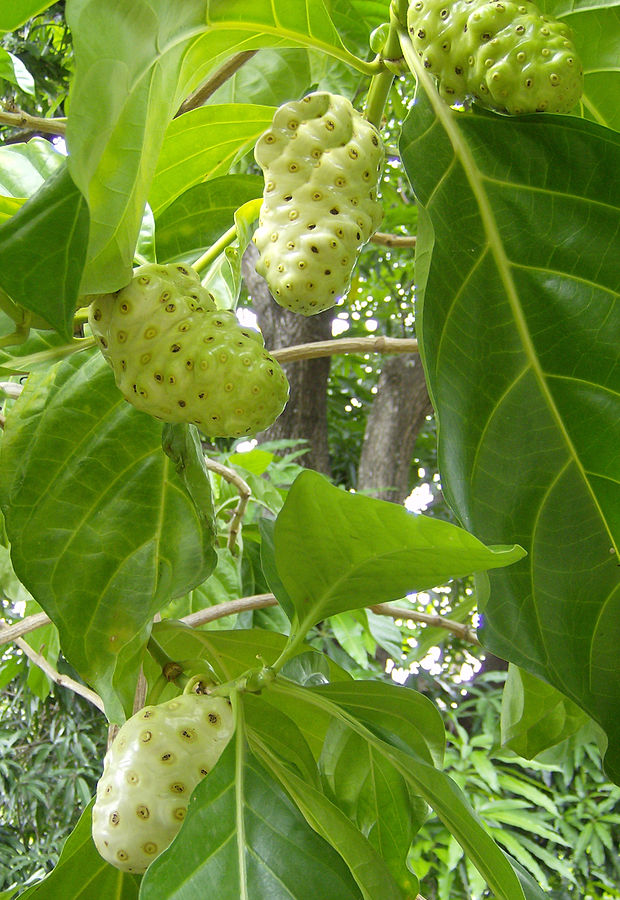Common Names: noni, morinda, Indian mulberry, hog apple, canarywood
Background
- Noni is a small evergreen tree found from Southeastern Asia to Australia, especially in Polynesia; it often grows among lava flows.
- Historically, many parts of the noni plant were used both externally and internally for a variety of health purposes, alone or in combination with other herbs.
- Today, the principal part of the noni plant used for health purposes is the ripe fruit, which is used as a dietary supplement for various chronic diseases, including cancer.
- The noni fruit is most commonly combined with other fruits to make juice. Preparations of the fruit and leaves are also available in capsules, tablets, and teas.
How Much Do We Know?
- Only a few studies have investigated the effects of noni in people.
What Have We Learned?
- In laboratory research, noni has shown antioxidant, immune-stimulating, and tumor-fighting properties. These results suggest that noni may warrant further study for various diseases. However, noni has not been shown to have beneficial effects on any chronic health condition in studies of people.
What Do We Know About Safety?
- Few side effects have been reported in studies of noni. However, several cases of liver toxicity have been reported in people who had consumed noni. It is unclear whether noni caused the liver problems.
- The U.S. Food and Drug Administration has issued warnings to noni manufacturers about making unsupported health claims.
- Noni contains a substantial amount of potassium. People who need to restrict their intake of potassium should consult a health care provider before using noni.
Keep in Mind
- Tell all your health care providers about any complementary or integrative health approaches you use. Give them a full picture of what you do to manage your health. This will help ensure coordinated and safe care.
For More Information
NCCIH Clearinghouse
The NCCIH Clearinghouse provides information on NCCIH and complementary and integrative health approaches, including publications and searches of Federal databases of scientific and medical literature. The Clearinghouse does not provide medical advice, treatment recommendations, or referrals to practitioners.
PubMed®
A service of the National Library of Medicine, PubMed® contains publication information and (in most cases) brief summaries of articles from scientific and medical journals. For guidance from NCCIH on using PubMed, see How To Find Information About Complementary Health Approaches on PubMed.
Office of Dietary Supplements (ODS), National Institutes of Health (NIH)
ODS seeks to strengthen knowledge and understanding of dietary supplements by evaluating scientific information, supporting research, sharing research results, and educating the public. Its resources include publications (such as Dietary Supplements: What You Need to Know), fact sheets on a variety of specific supplement ingredients and products (such as vitamin D and multivitamin/mineral supplements), and the PubMed Dietary Supplement Subset
Key References
- Noni. Natural Medicines Web site. Accessed at naturalmedicines.therapeuticresearch.com/ on April 20, 2015. [Database subscription].
- Pawlus AD, Su B-N, Deng Y, et al. Noni. In: Coates PM, Betz JM, Blackman MR, et al., eds. Encyclopedia of Dietary Supplements. 2nd ed. New York, NY: Informa Healthcare; 2010:570-576.
This publication is not copyrighted and is in the public domain. Duplication is encouraged.










+ There are no comments
Add yours